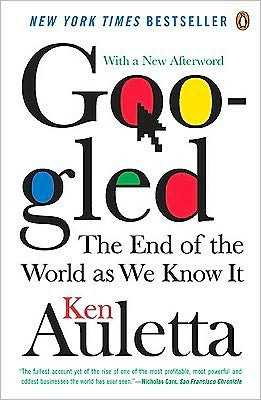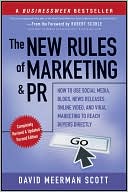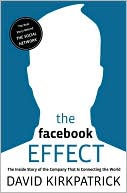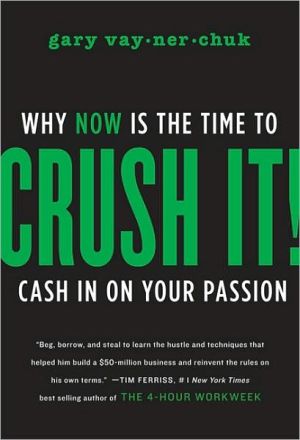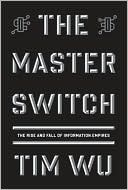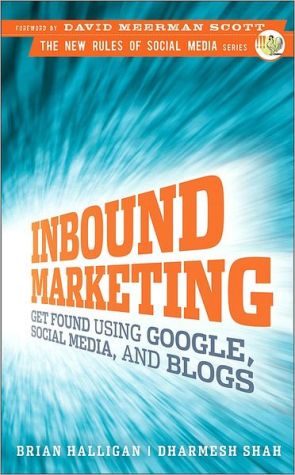Googled: The End of the World as We Know It
"The fullest account yet of the rise of one of the most profitable, most powerful, and oddest businesses the world has ever seen."\ -San Francisco Chronicle \ Just eleven years old, Google has profoundly transformed the way we live and work-we've all been Googled. Esteemed media writer Ken Auletta uses the story of Google's rise to explore the future of media at large. This book is based on the most extensive cooperation ever granted a journalist, including access to closed-door meetings and...
Search in google:
A revealing, forward-looking examination of the outsize influence Google has had on the changing media Landscape. There are companies that create waves and those that ride or are drowned by them. As only he can, bestselling author Ken Auletta takes readers for a ride on the Google wave, telling the story of how it formed and crashed into traditional media businesses—from newspapers to books, to television, to movies, to telephones, to advertising, to Microsoft. With unprecedented access to Google’s founders and executives, as well as to those in media who are struggling to keep their heads above water, Auletta reveals how the industry is being disrupted and redefined. Using Google as a stand-in for the digital revolution, Auletta takes readers inside Google’s closed-door meetings and paints portraits of Google’s notoriously private founders, Larry Page and Sergey Brin, as well as those who work with—and against—them. In his narrative, Auletta provides the fullest account ever told of Google’s rise, shares the “secret sauce” of Google’s success, and shows why the worlds of “new” and “old” media often communicate as if residents of different planets. Google engineers start from an assumption that the old ways of doing things can be improved and made more efficient, an approach that has yielded remarkable results— Google will generate about $20 billion in advertising revenues this year, or more than the combined prime-time ad revenues of CBS, NBC, ABC, and FOX. And with its ownership of YouTube and its mobile phone and other initiatives, Google CEO Eric Schmidt tells Auletta his company is poised tobecome the world’s first $100 billion media company. Yet there are many obstacles that threaten Google’s future, and opposition from media companies and government regulators may be the least of these. Google faces internal threats, from its burgeoning size to losing focus to hubris. In coming years, Google’s faith in mathematical formulas and in slide rule logic will be tested, just as it has been on Wall Street. Distilling the knowledge accrued from a career of covering the media, Auletta will offer insights into what we know, and don’t know, about what the future holds for the imperiled industry. The New York Times - Michiko Kakutani Googled depicts the company as a brilliant, game-changing behemoth that can be socially inept, and both naive and arrogant in its dealings with the world. The book, more fair-minded reportage than a polemic, leaves us with a telling portrait of a paradigm-altering company, which in 11 years has utterly transformed the business and media landscape, but which also suffers at times from the sort of myopia that comes from determinedly left-brain thinking—that is, a scientific-engineering driven point of view that prizes data, efficiency and growth while often overlooking more human and political concerns like privacy and copyright.
Preface xiPart 1 Different PlanetsChapter 1 Messing with the Magic 3Part 2 The Google StoryChapter 2 Starting in a Garage 27Chapter 3 Buzz but Few Dollars (1999-2000) 46Chapter 4 Prepping the Google Rocket (2001-2002) 66Chapter 5 Innocence or Arrogance? (2002-2003) 94Chapter 6 Google Goes Public (2004) 105Chapter 7 The New Evil Empire? (2004-2005) 121Part 3 Google Versus the BearsChapter 8 Chasing the Fox (2005-2006) 143Chapter 9 War on Multiple Fronts (2007) 169Chapter 10 Waking the Government Bear 186Chapter 11 Google Enters Adolescence (2007-2008) 199Chapter 12 Is "Old" Media Drowning? (2008) 228Chapter 13 Compete or Collaborate? 242Chapter 14 Happy Birthday (2008-2009) 262Part 4 GoogledChapter 15 Googled 281Chapter 16 Where Is the Wave Taking Old Media? 296Chapter 17 Where Is the Wave Taking Google? 322Afterword 33725 Business Maxims 345Acknowledgments 371Notes 373Index 407
\ Michiko KakutaniGoogled depicts the company as a brilliant, game-changing behemoth that can be socially inept, and both naive and arrogant in its dealings with the world. The book, more fair-minded reportage than a polemic, leaves us with a telling portrait of a paradigm-altering company, which in 11 years has utterly transformed the business and media landscape, but which also suffers at times from the sort of myopia that comes from determinedly left-brain thinking—that is, a scientific-engineering driven point of view that prizes data, efficiency and growth while often overlooking more human and political concerns like privacy and copyright.\ —The New York Times\ \ \ \ \ Nicholson Baker…absorbing, shaggy…I read the book in three huge gulps and learned a lot—about Google's "cold war" with Facebook, about Google's tussles with Viacom, about Google's role in the "Yahoo-Microsoft melee" and about Google's gradual estrangement from its former ally, Apple…what Auletta mainly does is talk shop with C.E.O.'s, and that is the great strength of the book. Auletta seems to have interviewed every media chief in North America, and most of them are unhappy, one way or another, with what Google has become.\ —The New York Times Book Review\ \ \ Publishers WeeklyAuletta offers a comprehensive history of Google's meteoric rise, profiling its creators, Larry Page and Sergey Brin, the initial team members, previous commentators on the organization, and Google's various competitors over the years. Jim Bond captures Auletta's tone admirably, tonally balancing fact and opinion within the book. Despite some vocal wavering, Bond commands our attention and sustains interest with pacing and emphasis that enable listeners to absorb the information effortlessly along with the significance of certain moments and individuals. A Penguin Press hardcover (Reviews, Aug. 24). (Nov.)\ \ \ \ \ Library JournalA corporate upstart just over a decade old, Google has wormed its way into our lives, our vocabulary, and even the hallowed halls of academe, with Internet dominance and multibillion-dollar advertising revenues that make it one of the largest media entities of all time. New Yorker media critic Auletta (Three Blind Mice: How the TV Networks Lost Their Way), who spent several years researching Google and interviewing hundreds of company and industry players, delivers the real scoop on how this Internet giant fits into the larger media landscape. His fascinating examination illuminates Google's world from just about every conceivable angle: competitive, legal, regulatory, cultural, and ethical. He wraps up with an assessment of where the behemoth might be headed but provides enough insight to allow readers to draw their own conclusions about Google and whether its emergence really does spell the end of the world as we know it. VERDICT While the Google phenomenon has spawned dozens of books, Auletta's years of research and firsthand access to insiders, critics, competitors, and commentators give readers a well-rounded perspective on the company and how it fits into the wider milieu.[See Prepub Alert, LJ 7/09.]—Carol J. Elsen, Univ. of Wisconsin Lib., Whitewater\ \ \ \ \ Kirkus ReviewsThe New Yorker's "Annals of Communication" columnist Auletta (Media Man: Ted Turner's Improbably Empire, 2004, etc.) goes behind the digital revolution to detail the past decade of astonishing growth at Google. The greatest fear of Microsoft's Bill Gates-"someone in a garage who is devising something completely new"-was realized in Stanford graduate students Larry Page and Sergey Brin, who parlayed their breakthrough search engine into an all-purpose threat to newspapers, books, television, movies, phones, advertising and even Microsoft. Page and Brin believe that their enlightened business practice of putting end users first reflects the firm's motto, "Don't be evil." Their tendency as engineers-to dismiss what cannot be objectively measured-has helped them undercut traditional advertising firms incapable of pinpointing the effectiveness of campaigns. It has also left them sometimes so hilariously deficient in emotional intelligence that, Auletta writes, they "naively believe that most mysteries, including the mysteries of human behavior, are unlocked with data." CEO Eric Schmidt has balanced their desire to move nimbly against the larger world's fears about privacy, copyright and antitrust issues. In a high-tech, high-wire act, Google has combined in-house initiatives and daring acquisitions, producing one innovation after another and aiming to become a $100 billion media company (more than twice the size of Time Warner, the Walt Disney Co. or News Corp.)-and battling legal moves from alarmed old-media rivals. While praising its innovations, Auletta criticizes the company for not living up to its ideals in, for instance, China, where it agreed to censor sites to assure access in theauthoritarian-controlled nation. Though not a vivid stylist, Auletta uncovers some endlessly colorful material and assesses its prospects critically but fairly-Google will thrive, he thinks, but they'd better guard against naivete and complacency. New York launch event. Tie-in to author's lecture schedule\ \ \ \ \ Publishers WeeklyAuletta offers a comprehensive history of Google's meteoric rise, profiling its creators, Larry Page and Sergey Brin, the initial team members, previous commentators on the organization, and Google's various competitors over the years. Jim Bond captures Auletta's tone admirably, tonally balancing fact and opinion within the book. Despite some vocal wavering, Bond commands our attention and sustains interest with pacing and emphasis that enable listeners to absorb the information effortlessly along with the significance of certain moments and individuals. A Penguin Press hardcover (Reviews, Aug. 24). (Nov.)\ \
